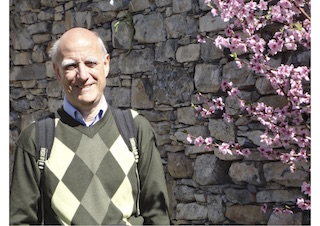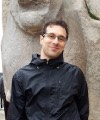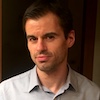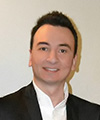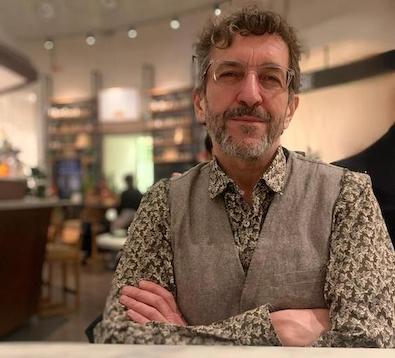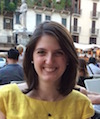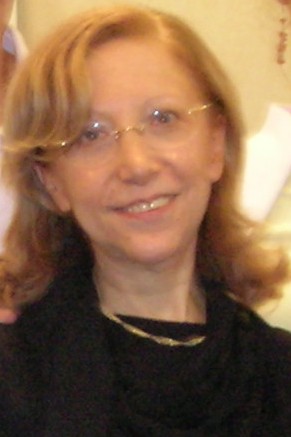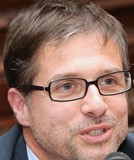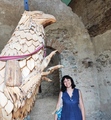Studying at the University of Verona
Here you can find information on the organisational aspects of the Programme, lecture timetables, learning activities and useful contact details for your time at the University, from enrolment to graduation.
Academic calendar
The academic calendar shows the deadlines and scheduled events that are relevant to students, teaching and technical-administrative staff of the University. Public holidays and University closures are also indicated. The academic year normally begins on 1 October each year and ends on 30 September of the following year.
Course calendar
The Academic Calendar sets out the degree programme lecture and exam timetables, as well as the relevant university closure dates..
| Period | From | To |
|---|---|---|
| Semestrino IA | Sep 28, 2015 | Nov 14, 2015 |
| Semestrino IB | Nov 16, 2015 | Jan 16, 2016 |
| Semestrino IIA | Feb 22, 2016 | Apr 16, 2016 |
| Semestrino IIB | Apr 18, 2016 | Jun 4, 2016 |
| Session | From | To |
|---|---|---|
| Sessione invernale | Jan 18, 2016 | Feb 20, 2016 |
| Sessione estiva | Jun 6, 2016 | Jul 30, 2016 |
| Sessione autunnale | Sep 1, 2016 | Sep 30, 2016 |
| Session | From | To |
|---|---|---|
| Sessione estiva | Jul 5, 2016 | Jul 6, 2016 |
| Sessione autunnale | Nov 22, 2016 | Nov 23, 2016 |
| Sessione invernale | Apr 3, 2017 | Apr 8, 2017 |
| Period | From | To |
|---|---|---|
| Festa di Ognissanti | Nov 1, 2015 | Nov 1, 2015 |
| Festa dell'Immacolata | Dec 8, 2015 | Dec 8, 2015 |
| Vacanze di Natale | Dec 23, 2015 | Jan 6, 2016 |
| Vancanze di Pasqua | Mar 24, 2016 | Mar 29, 2016 |
| Festa della Liberazione | Apr 25, 2016 | Apr 25, 2016 |
| Festa dei Lavoratori | May 1, 2016 | May 1, 2016 |
| Festa del S. Patrono S. Zeno | May 21, 2016 | May 21, 2016 |
| Festa della Repubblica | Jun 2, 2016 | Jun 2, 2016 |
| Vacanze estive | Aug 8, 2016 | Aug 15, 2016 |
Exam calendar
Exam dates and rounds are managed by the relevant Culture and Civilisation Teaching and Student Services Unit.
To view all the exam sessions available, please use the Exam dashboard on ESSE3.
If you forgot your login details or have problems logging in, please contact the relevant IT HelpDesk, or check the login details recovery web page.
Should you have any doubts or questions, please check the Enrollment FAQs
Academic staff
 angela.alaimo@univr.it
angela.alaimo@univr.it
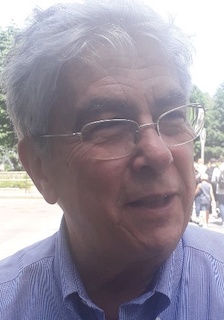
Avezzu' Guido
 guido.avezzu@univr.it
guido.avezzu@univr.it
 augusto.barbi@univr.it
augusto.barbi@univr.it

Bassetti Massimiliano
 massimiliano.bassetti@univr.it
massimiliano.bassetti@univr.it
 045802 8376
045802 8376
 evita.calabrese@univr.it
evita.calabrese@univr.it
Carnero Roberto
 roberto.carnero@univr.it
roberto.carnero@univr.it
 alberto.cavarzere@univr.it
alberto.cavarzere@univr.it

Chiecchi Giuseppe
 giuseppe.chiecchi@univr.it
giuseppe.chiecchi@univr.it
 +39 045802 8117
+39 045802 8117
 federica.gonzato@univr.it
federica.gonzato@univr.it
 elisa.lerco@univr.it
elisa.lerco@univr.it
 francesco.lupi@univr.it
francesco.lupi@univr.it

Mastrocinque Attilio
 attilio.mastrocinque@univr.it
attilio.mastrocinque@univr.it
 +39 045802 8386
+39 045802 8386
 flavia.palma@univr.it
flavia.palma@univr.it
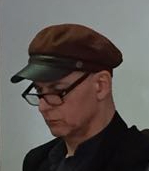
Pasini Roberto
 pasini.roberto@univr.it
pasini.roberto@univr.it
 +39 045802 8121
+39 045802 8121
Peresani Marco
 dino.piovan@univr.it
dino.piovan@univr.it

Pozzo Riccardo
 riccardo.pozzo@univr.it
riccardo.pozzo@univr.it
 +390458028053
+390458028053
 alberto.scandola@univr.it
alberto.scandola@univr.it
Tani Stefano
 stefano.tani@univr.it
stefano.tani@univr.it
 +39 045802 8110
+39 045802 8110
 sonia.trovato@univr.it
sonia.trovato@univr.it
 gianmaria.varanini@univr.it
gianmaria.varanini@univr.it
Study Plan
The Study Plan includes all modules, teaching and learning activities that each student will need to undertake during their time at the University.
Please select your Study Plan based on your enrollment year.
1° Year
| Modules | Credits | TAF | SSD |
|---|
One course to be chosen among the followingForeign language B1 (CB Test)2° Year activated in the A.Y. 2016/2017
| Modules | Credits | TAF | SSD |
|---|
Latin literature (i)
One course to be chosen among the following2 course to be chosen among the following2 course to be chosen among the following3° Year activated in the A.Y. 2017/2018
| Modules | Credits | TAF | SSD |
|---|
One course to be chosen among the following3 course to be chosen among the following| Modules | Credits | TAF | SSD |
|---|
One course to be chosen among the followingForeign language B1 (CB Test)| Modules | Credits | TAF | SSD |
|---|
Latin literature (i)
One course to be chosen among the following2 course to be chosen among the following2 course to be chosen among the following| Modules | Credits | TAF | SSD |
|---|
One course to be chosen among the following3 course to be chosen among the following| Modules | Credits | TAF | SSD |
|---|
Legend | Type of training activity (TTA)
TAF (Type of Educational Activity) All courses and activities are classified into different types of educational activities, indicated by a letter.
The History of science (p) (2017/2018)
Teaching code
4S01268
Teacher
Coordinator
Credits
6
Language
Italian
Scientific Disciplinary Sector (SSD)
M-STO/05 - HISTORY OF SCIENCE AND TECHNOLOGY
Period
First half of Semester 2 dal Feb 26, 2018 al Apr 21, 2018.
Learning outcomes
The first aim is to clarify the differences between the Eighteenth-century transformism, especially Lamarck's theory of biological change, Darwin's evolution, and contemporary evolutionary theory. Secondly, the intention is to emphasize the implications of such debates for modern ideas concerning the place of man in nature. Therefore, interdisplinary relations with contemporary debates in philosophy and literature will be constantly emphasized. Analyzing a selection of relevant historical sources during class work, students will develop the ability to recognize topics and ways of the theorical exchange among disciplines. From both a chronological and methodological perspective, this course represents a natural sequel of the introductory course. As a result, students should be able to connect the main developments in modern culture to the rise of biological sciences. Moreover, they will acquire a deeper sensitivity toward the cognitive and social processes generating scientific innovation, enabling them to develop a critical attitude that it is essential to excercise citinzenship.
Program
The rise and development of evolutionary theory
Ancient biology
1. Plato and Aristotle
2. Lucretius
3. Biblical creationism
4. Metamorphosis and variation in nature
Variation and stability in the Seventeenth century
5. John Ray and the idea of perfect adaptation
6. Robert Hooke and he revolutions of the globe
Variation of the species in the Eighteenth century
7. B. de Maillet and Libertinism
8. Preformation and epigenesis
9. Buffon: degeneration of the species
10. Maupertuis, Diderot
11. Linnaeus and the economy of nature
12. Charles Bonnet: the Palingénésie
Pre-darwininian transformism
13. Erasmus Darwin
14. J.B. Lamarck
15. Cuvier vs. Geoffroy Saint-Hilaire
Darwin's theories
16. The origin of the ’Origin'
17. Natural theology
18. On the Origin of species (1859)
19. Human evolution
Evolutionary theories in the twenteenth-century
20. The New Sinthesis
21. Intelligent Design
22. Punctuated equilibria according to Steven J. Gould
Each lecture will be divided in two parts. During the first part, Professor will introduce the general topic in a traditional way. In the second, students will be requested to analyse and debate historical sources and essays provided in advance in Pdf format.
| Author | Title | Publishing house | Year | ISBN | Notes |
|---|---|---|---|---|---|
| Barsanti, G. | Una lunga pazienza cieca. Storia dell'evoluzionismo | Einaudi | 2005 |
Examination Methods
During the traditional oral interview the professor will assess the quality of the acquired information, the logic of the argumentation, the originality and autonomy of thought acquired by the student.
The student's active participation in the class work will be duly considered.
Type D and Type F activities
Modules not yet included
Career prospects
Module/Programme news
News for students
There you will find information, resources and services useful during your time at the University (Student’s exam record, your study plan on ESSE3, Distance Learning courses, university email account, office forms, administrative procedures, etc.). You can log into MyUnivr with your GIA login details: only in this way will you be able to receive notification of all the notices from your teachers and your secretariat via email and soon also via the Univr app.
Graduation
List of theses and work experience proposals
| theses proposals | Research area |
|---|---|
| tesi di Glottologia, Storia comparata, Linguistica storica | ENGLISH LANGUAGE - Grammar and Syntax – Grammatik und Syntax |
| tesi di Glottologia, Storia comparata, Linguistica storica | GERMANIC LANGUAGE - Dialectology - Dialektologie |
| tesi di Glottologia, Storia comparata, Linguistica storica | HUMANITIES & SOCIAL STUDIES - HUMANITIES & SOCIAL STUDIES |
| tesi di Glottologia, Storia comparata, Linguistica storica | Indo-European languages & literatures - Indo-European languages & literatures |
| tesi di Glottologia, Storia comparata, Linguistica storica | LINGUISTICS - LINGUISTICS |
| Stage | Research area |
|---|---|
| Lavorare in archivio | Various topics |
| L'iter del libro in biblioteca | Various topics |
Gestione carriere
Linguistic training CLA
Student mentoring
Requisiti classi di abilitazione insegnamento
Requisiti necessari per accedere alle classi di abilitazione per l'insegnamento.
vedi allegato pdf
Inoltre, per informazioni sui 24 CFU nelle discipline antropo-psico-pedagogiche e nelle metodologie e tecnologie didattiche, si veda -> LINK
Documents
| Title | Info File |
|---|---|
|
|
pdf, it, 307 KB, 30/11/21 |








